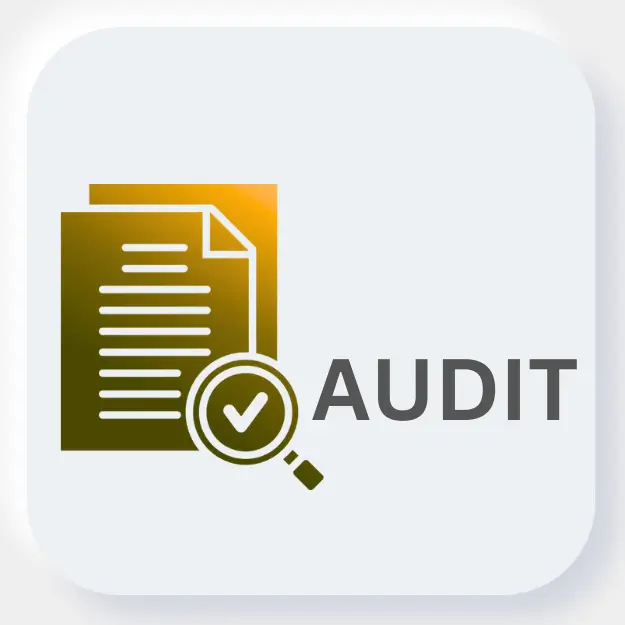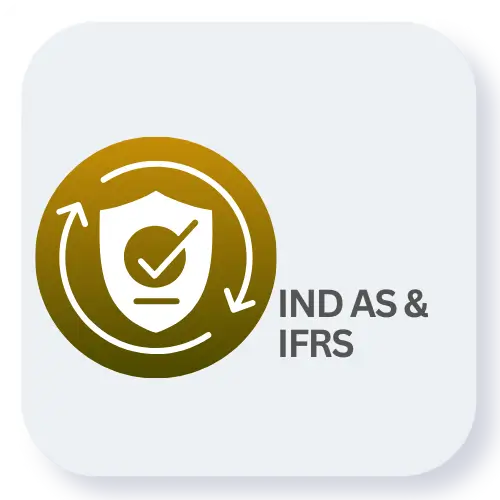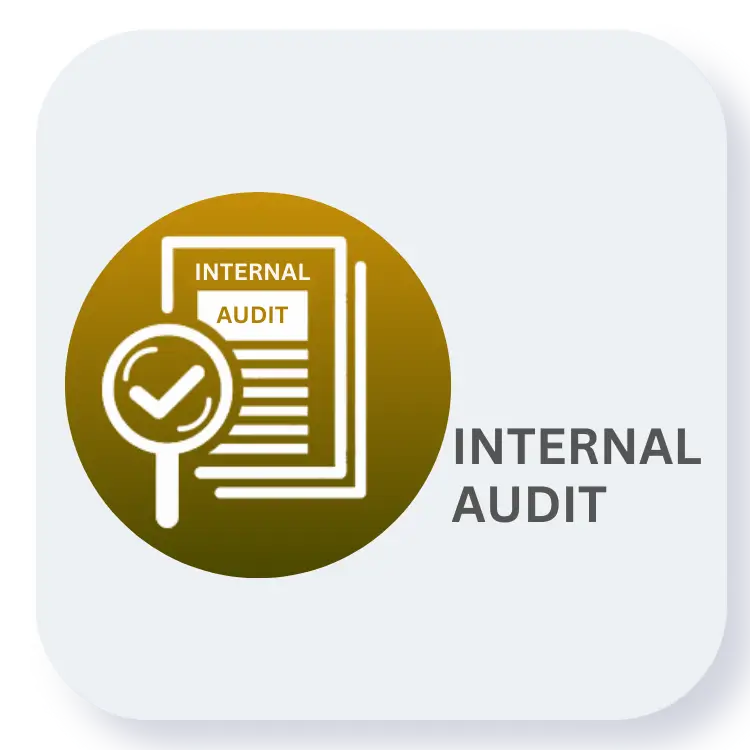Introduction
If you’ve been following the finance or risk management space lately, you must have noticed one
thing-internal auditors are suddenly in huge demand. Companies aren’t just content with statutory audits
once a year anymore; they want someone who can keep an eye on controls, spot risks before they become
problems, and make sure the business stays compliant all the time. That’s exactly why the certified
internal auditor course is becoming so popular, especially in India.
For commerce graduates, CA Inter pass-outs, MBAs, or even finance professionals who’ve been working for
a few years, earning an audit certificate like the Certified Internal Auditor (CIA) isn’t just another
line on the resume. It’s a globally recognized credential that shows you truly understand risk
management, internal controls, and corporate governance-not just in theory, but in practice.
What is the Certified Internal Auditor Course?
At its core, the certified internal auditor course is a professional qualification offered by The
Institute of Internal Auditors (IIA), USA. Think of it as the gold standard for internal audit
professionals. Unlike short-term diplomas or crash courses, this is a structured program with global
recognition.
When people ask me, “Which audit certificate is best for career growth?”-I often point towards the CIA
because of how well it is respected internationally. It opens doors not only in India but also in the
Middle East, Europe, and the US, where internal audit functions are highly valued.
When people ask me, “Which audit certificate is best for career growth?”-I often point towards the CIA
because of how well it is respected internationally. It opens doors not only in India but also in the
Middle East, Europe, and the US, where internal audit functions are highly valued.
Syllabus: What You’ll Learn in the CIA Journey
Now, let’s break down the syllabus. Students often feel overwhelmed when they first hear “three parts of
exams,” but in reality, each module builds on the previous one. Imagine yourself moving from the basics
to advanced applications in auditing-step by step.
Part 1: Essentials of Internal
Auditing
This is your foundation. You’ll study the International Professional Practices Framework (IPPF),
ethics, risk concepts, and the basics of internal controls. Think of it as understanding the
language of auditors before you start speaking it fluently.
Part 2: Practice of Internal Auditing
Here, you dive deeper into audit planning, performing engagements, and communicating results. Many
students find this part practical, because it mirrors what they’d actually do in a corporate
internal audit team.
This is where the strategic part comes in. Topics like financial management, IT, and business acumen
are tested. It’s no longer about just ticking checklists-you learn how to link audit findings with
larger business goals.
Most candidates say that the syllabus feels like a journey: at first you’re just learning
definitions, but by the end, you’re thinking like an advisor to management. That’s the beauty of the
certified internal auditor course-it transforms your perspective.
Certified Internal Auditor Course Fees in India
One of the most common questions I get is: “What are the certified internal auditor course fees in
India?”
To give you a clear view:
IIA Membership Fees : Around ₹10,000-12,000 per year.
Exam Fees : Each part costs anywhere between ₹20,000 to ₹25,000 for Indian candidates, which makes
the total exam cost fall roughly in the ₹60,000 to ₹75,000 range.
Additional Costs : Study materials and coaching can add up to additional ₹20,000 to ₹40,000,
depending on whether you go for self-study or guided classes.
So, in total, you’re looking at ₹1-1.25 lakhs for just completing the course. At first, this may feel
huge. But when you compare it to how recruiters value an audit certificate, the ROI is clear.
Also read- Internal
vs statutory audit.
Career Scope: Why This Audit Certificate Can Change Your Path
Now let’s talk about the part that excites most students-career scope.
Once you complete the certified internal auditor course, you’re not just limited to audit firms. In
fact, corporates across industries, banks, FMCG, IT, and manufacturing are hiring internal auditors
rapidly. Companies want professionals who can detect risks early and prevent financial or operational
issues.
For example:
A commerce graduate with a CIA often gets hired into multinational companies’ internal audit teams
directly, bypassing years of routine accounting work.
CAs who add this audit certificate to their profile usually find themselves moving faster into
managerial and risk advisory roles, even in Big 4 firms.
MBAs with CIA certification stand out in governance and compliance profiles, especially in financial
services.
Globally, the salary premium is significant. In India, fresh certified internal auditors can expect
anywhere from ₹6–9 lakhs annually, while experienced professionals often command ₹15–25 lakhs depending
on industry. In the Middle East and US, these numbers are far higher.
In short, the career scope isn’t just “good”-it’s transformative if you leverage it well.
Eligibility & Duration: Who Can Apply and How Long It Takes
A frequent doubt I hear is: “Who is eligible for certified internal auditor course in India?”
- You need a bachelor’s degree (any stream, but commerce/finance helps).
- Students pursuing CA, CMA, or MBA can apply, though you’ll need to show proof of graduation before
certification is awarded.
- You also need some work experience-usually 2 years for graduates. However, this varies depending on
your degree level (e.g., a master’s degree reduces the required experience).
Now, about the duration. “What is the duration of the certified internal auditor course?” Honestly, it
depends on your pace. Some professionals complete all three parts in 12–18 months, while others spread
it over two years. If you’re working full-time, a year and a half is realistic.
Is the Certified Internal Auditor Course Worth It?
This is the million-dollar question. And my answer is-yes, provided you know what you want from it.
If your career aspiration is to grow in internal audit, risk, or governance, then this is hands down the
best audit certificate you can pursue. It has global acceptance, practical syllabus, and strong ROI in
terms of career scope.
However, if you’re only looking to stay in accounting or tax, then this may not be as useful as other
specializations. Like any professional course, it works best when aligned with your goals
Also read- How
to do internal audit?
Conclusion
The Certified Internal Auditor course isn’t just a line on your resume-it’s a real career investment. The
syllabus isn’t about going through the motions; it’s meant to get you ready for the actual challenges in
internal audit, risk management, and compliance. The fees might feel a bit huge in the starting, but
it’s definitely worth it as a CIA certificate can boost your pay and open doors all over the world.
If you want a job
looking after risks and making sure everything is done the right way, this certificate
can really help you. Just think about what you want, see if it’s worth it, and if it feels right, go for
it. People who are good at this job are needed a lot, and being ready will give you a big advantage.

.webp)


















































